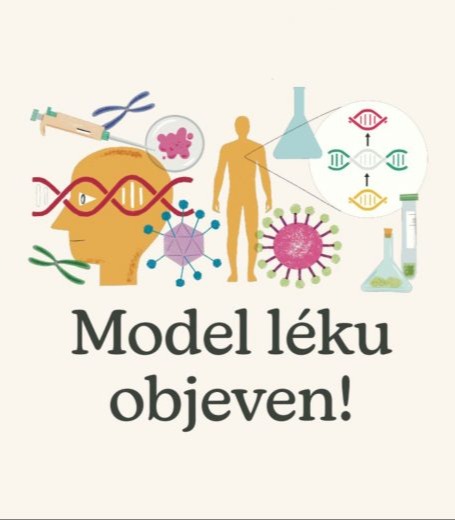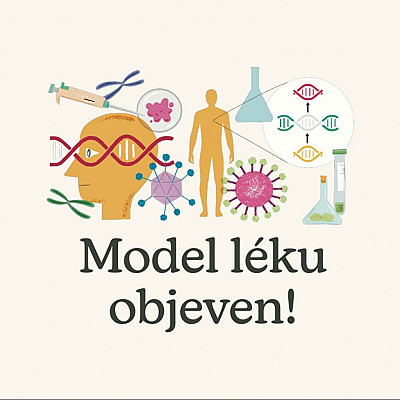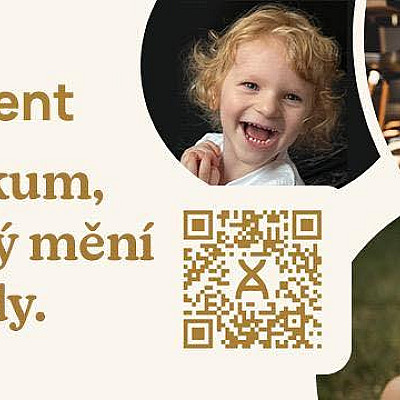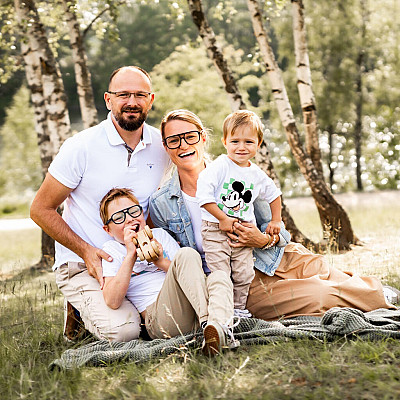
Fundraiser for 22 million could yield therapeutic procedure to cure Angelman syndrome
5 years ago, the parents of little Oliver, Lenka and Rado, approached a Czech scientific team within their organization Asgent with one goal - to turn the incurable disease Angelman syndrome into a curable one. And they are succeeding! The research is getting closer and closer to the goal every year. This year, the research team succeeded in creating a proposal for a functional therapeutic procedure. The road to a future cure and the first patients will still be challenging, but the Czech research team is closer than ever. But to reach sick children, they need your help. In order to turn hope into reality, we now need to raise funds to carry out preclinical tests. GHC Genetics has been a proud partner and supporter of Asgent for several years.
That's why the patient organization Asgent has launched a public fundraiser and hopes to raise the necessary 22 million for the all-important preclinical research. The well-known Czech influencer Nikol Leitgeb (Štíbrová) through her foundation NF Radovan is helping significantly.
You can watch the video for this fundraiser HERE
The proposed therapeutic procedure is ready to be tested. Now the funds are needed for preclinical research, which includes laboratory testing and the administrative process associated with the registration of the drug. If the drug can be kept in the hands of the patient organisation, this will make it cheaper and thus more accessible to all who need it. Another significant advantage is that if the drug can be developed in the Czech Republic, Czech patients will have priority access to treatment. An important aspect of research is its efficiency - a small team of scientists and a patient organisation
The research is being conducted at the Czech Centre for Phenogenomics (CCP)The research team is led by Radislav Sedláček, director of CCP, a leading expert in the field of transgenic and genetically modified organisms, and Jan Procházka, deputy director and head of the phenotyping module. In the laboratories of the Centre for Phenogenomics there are plastic boxes in which scientists keep one to six black mice for testing purposes. Some are healthy, others suffer from the same disease as Oliver. "By genetically modifying fertilized mouse eggs, we have produced female founders of a lineage with the same gene disorder as people with Angelman syndrome. The disease is confirmed by genetic tests, but we can also recognise it from behaviour," says molecular biologist and deputy director of the centre Jan Procházka. At rest, mice with affected brains are apathetic, do not move much and are not interested in their surroundings. In stress, on the other hand, they behave in the opposite way. "They stop when another caregiver approaches them and become hyperactive. They're running around scared, jumping madly...They can't cope with a stressful situation like healthy mice," says Procházka. The scientists will now give the sick mice a unique treatment they have developed. They will inject a solution into their blood with a "programmed gene," which, after a single administration, should eliminate the cause of the problem. The results of the treatment will then be checked by tests, but they expect the mice's behaviour to be modified as well.
Where you can donate to the fundraiser:


